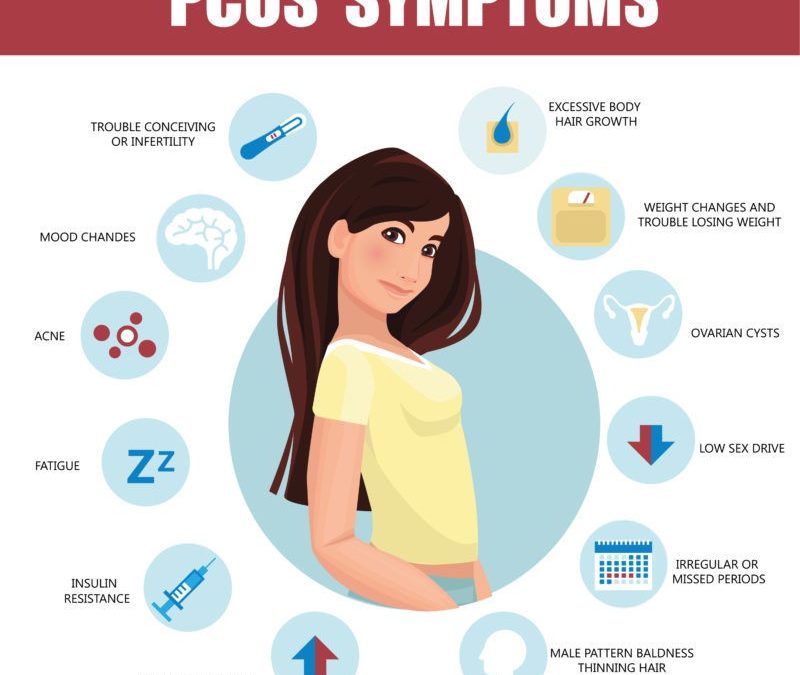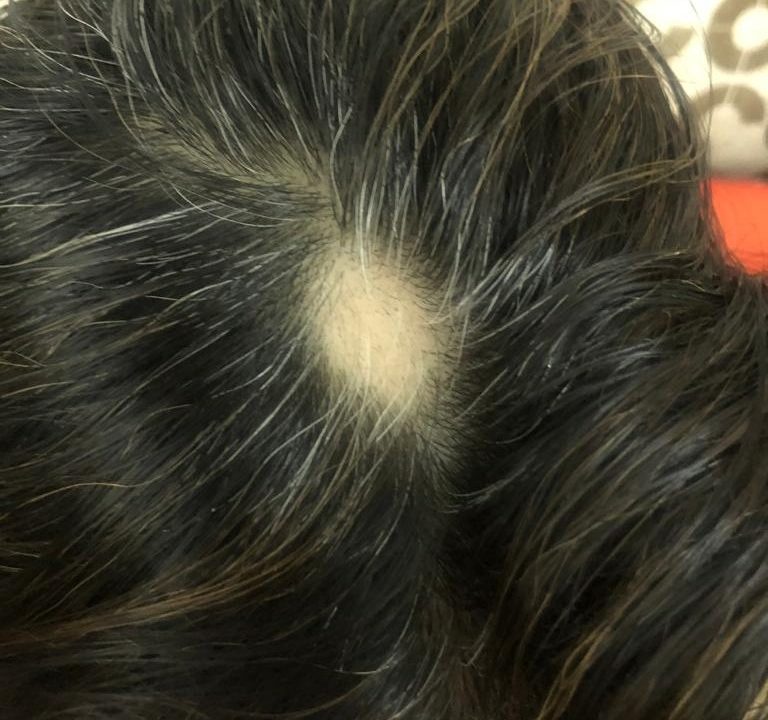PCOS(Polycystic Ovary Syndrome)

Knee Joint Pain
April 8, 2021
3 BEST AYURVEDIC HERBS FOR HAIR GROWTH
May 1, 2021Polycystic Ovary Syndrome (PCOS) is an illness that affects every part of a woman’s body. But the most important thing all the women should know is remember is that it is NOT caused by something you did.
Genetics, environment and lifestyle factors all play a role in causing PCOS. Women with a family history of diabetes, PCOS and obesity are more likely to have it.
While there is no cure, holistic treatment is the best way to manage symptoms.
Consequences of PCOS
PCOS is a lifelong illness with long-term health consequences; such as –
- Irregular Periods
- Infertility
- Weight Gain & Obesity
- Mood swings
- Pregnancy complications
- Acne
- Hair loss
- Excess Hair
- Stress, anxiety, depression
- Diabetes & Heart Disease
PCOS cannot be cured. It is a lifelong condition. However, its symptoms like weight gain and obesity, mood swings, acne, hair loss, irregular periods can be reversed with lifestyle-based changes over the long term. Research has shown that women with PCOS who receive treatment from several doctors have a higher chance of success in managing their condition.
Causes of PCOS
Doctors don’t know exactly what causes PCOS. They believe that high levels of male hormones prevent the ovaries from producing hormones and making eggs normally. Genes, insulin resistance, and inflammation have all been linked to excess androgen (hormones that contribute to growth and reproduction in both men and women) production.
- Genes
Studies show that PCOS runs in families.
It’s likely that many genes — not just one — contributes to the condition.
- Insulin resistance
Up to 70% of the women with PCOS have insulin resistance, meaning that their cells cannot use insulin properly.
Insulin is a hormone that the pancreas produces to help the body use sugar from foods for energy.
When cells cannot use insulin properly, the body’s demand for insulin increases. The pancreas makes more insulin to compensate. Extra insulin triggers the ovaries to produce more male hormones.
Obesity is a major cause of insulin resistance. Both obesity and insulin resistance can increase your risk for Diabetes.
- Inflammation
Women with PCOS often have increased levels of inflammation in their body. Being overweight can also be a cause for inflammation. Studies have linked excess inflammation to higher androgen levels.
Ayurvedic treatment for PCOS typically focuses on: herbs, such as Ashwagandha and Turmeric. As well as, some other forms of therapies, such as yoga and breathing exercises. A change in your lifestyle, such as increasing consumption of fruits, vegetables and whole grains while reducing consumption of fats, salt, and refined sugar.
PCOS Treatment in Ayurveda
PCOS needs early diagnosis and long term management for avoiding long term complications. PCOS treatment in Ayurveda recommends Virechana (Detoxification), Nasya, Shirodhara along with Diet and lifestyle modification. Ayurveda has a very systematic approach in treating the disease.
- Weight loss in PCOS– Losing just 5-10% of the weight helps to develop regular period cycle.
- Restoration of fertility – Focusing on regular ovulation and AMH levels
- Treatment of hirsutism, hair fall & acne – Therapies to combat skin and hair issues
- Lowering of serum insulin levels – Restoring normal hormonal levels
Diet recommendation for PCOS
- Avoid all sweet food (especially artificial)
- Reduce salt intake during menstruation
- Increase the consumption of fruit and vegetables.
- Increase consumption of whole grains
- Non veg food such as fresh fish, organic chicken, organic eggs, whole grains should be eaten to balance your blood glucose levels.
- Reduce the intake of saturated fats that are found in red meat, chicken, commercially prepared snack foods and deep fried food.
Lifestyle recommendation for PCOS
- Manage stress and anxiety. Reducing stress can help balance your hormones.
- Stay well hydrated by drinking 1.5 – 2 litres of filtered water daily.
- Perform moderate exercise of 45 min daily
- Practice alternate Nasal breathing – Pranayama
Yoga for PCOS
Yoga helps tone up the whole reproductive system. Asanas such as Dhanurasana, Uttanpadasana, Badhakonasana, Ushtrasana, vrikshasana, and Vajrasana are those asanas which help to regularize your period cycle.
Practicing these asanas along with pranayama regularly will develop muscular strength in your body. Avoid the food which causes obesity and develop healthy reproductive organs by keeping their hormones in balance.
Chandraprabha Vati & Kanchnar Guggul are two very effectives ayurvedic medicines for PCOS. These are like uterine tonic which strengthens female uterus.




